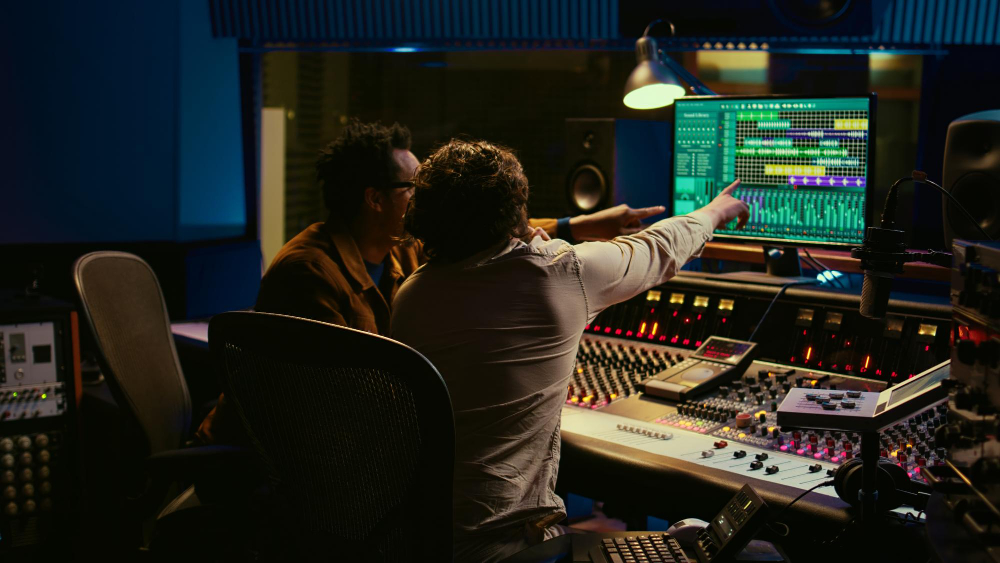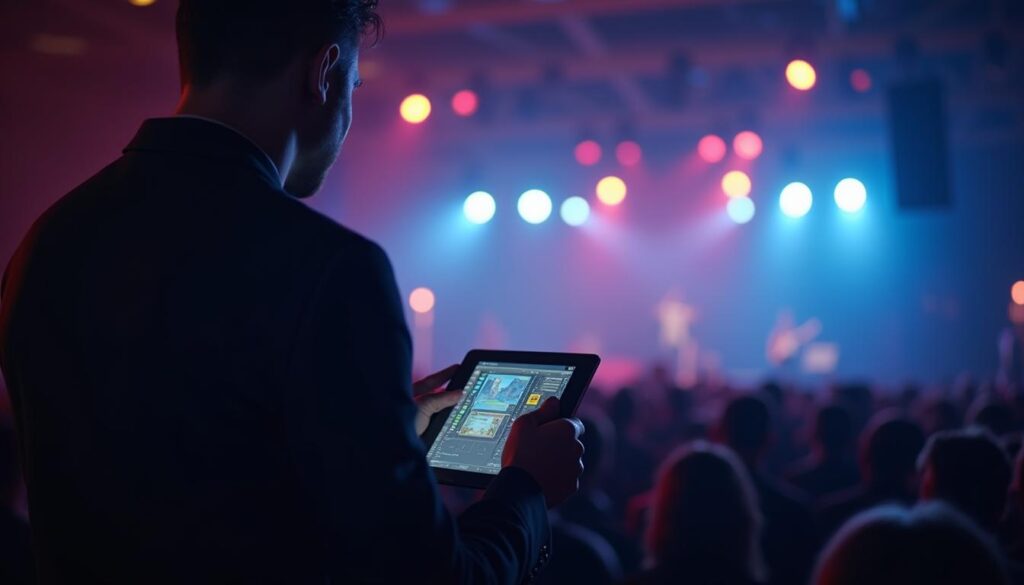
How to Capitalize on the Rise of Co-Promotion in Live Music
Collaboration has always been a fundamental part of the music business, yet now it’s more important than ever. With shifting market dynamics and a rush of enthusiasm for live music post-Covid, co-promotion events are a staple of the new normal. Even for the independent operator used to handling all ends of the music management business, the right co-promoter can ease the pressure, spread out risk, and guarantee the resources to make it all fall into place.
But with new partners comes new complexity. Being able to remain flexible while staying true to your vision for a show is critical. By understanding the challenges of a co-pro event and landing on solutions everyone can live with, you can fully take advantage of the trend. For those who have the business operation side in order, working well with co-promoters can be the way to thrive in challenging circumstances.
The biggest advantages of co-promotion
In the fast-paced world of live music, reliability is everything. Promoters know they can’t control every little detail, but they tend to use the systems they trust to create a foundation of stability. Although every show is different, it helps when the behind-the-scenes operation that makes it all work is as predictable as possible.
Co-promotion has grown in prominence mostly out of necessity. In the aftermath of the pandemic, about one in three events have co-promoters. While the rise of public-facing developments like VR concerts display broader industry shifts, the prominence of co-pro events shows just how much the business underpinnings have changed as well.
Some of the biggest advantages of co-promotion of live music events include:
- Splitting risk. The pandemic reset risk/reward expectations throughout the industry. Having a partner to shoulder some of the responsibility can be a tremendous boost for promoters trying to navigate the post-pandemic boom.
- Co-promotion can create flexible business relationships. Whether it’s an arrangement between a promoter and a venue or between multiple promoters, a co-promotion deal can be crafted to fit the unique circumstances of the event. Because a full-time hire might not be feasible in many situations, co-promotion can be the ideal solution that ensures the show has the necessary resources and offstage talent.
- Handling larger or more diverse shows. Being adaptable was a key to survival in 2020 and 2021, leading to promoters handling new types of shows. In many cases, it also meant handling larger ones than they did beforehand. To pull it off, the right co-promoters can provide resources and expertise for those looking to expand their horizons.
- Creating reliable new industry contacts and utilizing shared networks. With labor and equipment shortages still ongoing, finding new allies and adding to your business network is critically important. Being able to add fresh names into the mix when problem solving can make sure a show moves forward as planned despite these challenges.
Obstacles to successfully working with co-promoters
Due to the complex nature of the current live-music scene, bringing on co-promoters isn’t always easy. Without the right organization system in place, it can even turn into a financial and logistical debacle that requires a lot of time and energy to solve. However, by anticipating issues and finding the right platform to support your endeavors, any potential headaches from co-promotion can be easily relieved. Some of the challenges to be ready for:
The challenge of maintaining transparency
When you’ve worked with the same crew and/or partners over and over again, it’s very easy to get on the same page from a business operations standpoint. But that’s not the case when new partners are added into the mix. Everything from the artist’s offer through the various settlement stages needs to be completely above board and easy to access. Those relying on older management styles or platforms can struggle to maintain transparency when it’s needed the most.
RELATED: Prism launches first-ever Co-Pro system
Keeping track of separate expenses and revenue
Expense and revenue spreadsheets can get a little messy—especially when co-promoters are involved. Although the initial agreement may sound pitch-perfect, the expenses must align at the end of the show to maintain trust between partners. Often, promoters end up manually calculating expenses and revenues, hoping to match their documents with the other partners after the show.
While related issues can be alleviated with automation-based management software, back-end haggling can dampen a show’s success and stall future business. In a worst-case scenario, a disorganized expense system can hurt a promoter’s reputation and make future co-promotion deals more difficult to land.
Settlement can be more complex with co-promoters
Having one or more partners always adds complexity to the mix, which can lead to a protracted settlement process without the right system in place.
Even if a show goes well overall, the profit-splitting process will test the original deal’s strength and the business operations of all entities involved. A quick settlement will allow partners to immediately realize the upside of the deal, although settlement issues can magnify negatives and discourage budding relationships.
Creating a final document all partners can be happy with
When partners are ready to walk away from a show, they want to be able to access documents that pinpoint exactly how well the show came together. Critically, they will likely want to reference it in the future as well. The final document will show if the overall process was cumbersome or unnecessarily complicated.
On the flip side, a well-organized process should yield an excellent final report with all the key pieces of information. When a promoter looks back on a show and considers working with a partner again, the strength of the bookkeeping will be a reason to agree (or not agree) to another co-promotion deal.
Solving co-pro drawbacks and repeating good business practices
To consistently succeed with co-promotion deals, you typically need one of two things: outstanding bookkeeping and organization or the right type of management software to lighten the burden. This is why it’s no surprise that many promoters are already relying on the benefits of automation to provide a reliable system of support before, during, and after the show.
Not only can automated platforms eliminate the need for manually calculating expenses but can provide the ideal common space for collaboration. Instead of disconnected spreadsheets, a centralized platform puts everything in one place. Partners can add in new expenses as they go, helping co-promoters stay in sync through all phases of the show.
Today’s best operators also recognize the importance of real-time data throughout the entire process. While real-time ticket sales provide critical insights, the same is true for those who can see expenses being uploaded by their co-promoters. Pros using automation-based software can keep everyone apprised of all key figures and details without having to do the legwork of finding the information themselves.
As everyone tries to overcome industry hurdles, management platforms that fit a promoter’s regular workflow will provide a valuable boost of efficiency and bookkeeping accuracy. With promoters looking to establish long-term relationships that can lead to fruitful deals in the future, those who can make the business fundamentals look easy will have a significant advantage.
Co-Promotion can be complex: Make sure you’re doing it right
Unique business arrangements in live music are a growing benefit to the industry. While in some ways things are more complicated than ever, keeping track of all the moving parts doesn’t have to be especially difficult. To help handle the new environment, Prism created a new Co-Pro system to provide a support system that can fit any circumstance.
Created by music professionals, Prism’s Co-Pro platform is designed with real-world experience in mind. Ditching the system of disconnected spreadsheets for a central virtual space, Co-Pro helps ensure transparency, saves valuable time, and makes profit splitting as easy as possible when multiple partners are involved. It’s also designed to eliminate redundancies and manually tabulated expenses, which regularly plague co-pro events and often delay the profit-splitting process.
The end result is a simplified way for promoters to collaborate on a single show. By focusing on creating a tool that aligns with a promoter’s workflow, Prism makes it easy to keep all the details in place no matter how many partners are involved. To find out more about what Prism’s Co-Pro system can do, contact the team at Prism to schedule a demo.

Matt Ford is the founder and CEO of Prism.fm, an Austin-based software company revolutionizing live music event management. With a background in entrepreneurship and a degree from the University of Wisconsin-Madison School of Business, Ford combined his self-taught coding skills with firsthand experience as a concert promoter to address the inefficiencies he observed in the industry. In 2018, he launched Prism.fm, an all-in-one platform designed to streamline operations for venues, promoters, and agencies by replacing cumbersome spreadsheets with integrated tools for booking, financial tracking, and contract management. Under his leadership, Prism.fm has grown significantly, achieving $3 million in annual recurring revenue post-COVID and securing over $15 million in funding . Ford’s commitment to building user-centric solutions has positioned Prism.fm as a trusted partner for over 1,500 venues and promoters worldwide.



